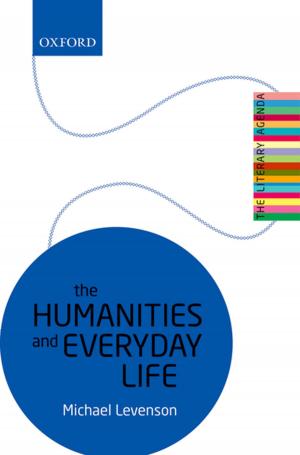| Author: | ISBN: | 9780191085277 | |
| Publisher: | OUP Oxford | Publication: | May 3, 2018 |
| Imprint: | OUP Oxford | Language: | English |
| Author: | |
| ISBN: | 9780191085277 |
| Publisher: | OUP Oxford |
| Publication: | May 3, 2018 |
| Imprint: | OUP Oxford |
| Language: | English |
An important issue in epistemology concerns the source of epistemic normativity. Epistemic consequentialism maintains that epistemic norms are genuine norms in virtue of the way in which they are conducive to epistemic value, whatever epistemic value may be. So, for example, the epistemic consequentialist might say that it is a norm that beliefs should be consistent, in that holding consistent beliefs is the best way to achieve the epistemic value of accuracy. Thus epistemic consequentialism is structurally similar to the family of consequentialist views in ethics. Recently, philosophers from both formal epistemology and traditional epistemology have shown interest in such a view. In formal epistemology, there has been particular interest in thinking of epistemology as a kind of decision theory where instead of maximizing expected utility one maximizes expected epistemic utility. In traditional epistemology, there has been particular interest in various forms of reliabilism about justification and whether such views are analogous to—and so face similar problems to—versions of consequentialism in ethics. This volume presents some of the most recent work on these topics as well as others related to epistemic consequentialism, by authors that are sympathetic to the view and those who are critical of it.
An important issue in epistemology concerns the source of epistemic normativity. Epistemic consequentialism maintains that epistemic norms are genuine norms in virtue of the way in which they are conducive to epistemic value, whatever epistemic value may be. So, for example, the epistemic consequentialist might say that it is a norm that beliefs should be consistent, in that holding consistent beliefs is the best way to achieve the epistemic value of accuracy. Thus epistemic consequentialism is structurally similar to the family of consequentialist views in ethics. Recently, philosophers from both formal epistemology and traditional epistemology have shown interest in such a view. In formal epistemology, there has been particular interest in thinking of epistemology as a kind of decision theory where instead of maximizing expected utility one maximizes expected epistemic utility. In traditional epistemology, there has been particular interest in various forms of reliabilism about justification and whether such views are analogous to—and so face similar problems to—versions of consequentialism in ethics. This volume presents some of the most recent work on these topics as well as others related to epistemic consequentialism, by authors that are sympathetic to the view and those who are critical of it.















